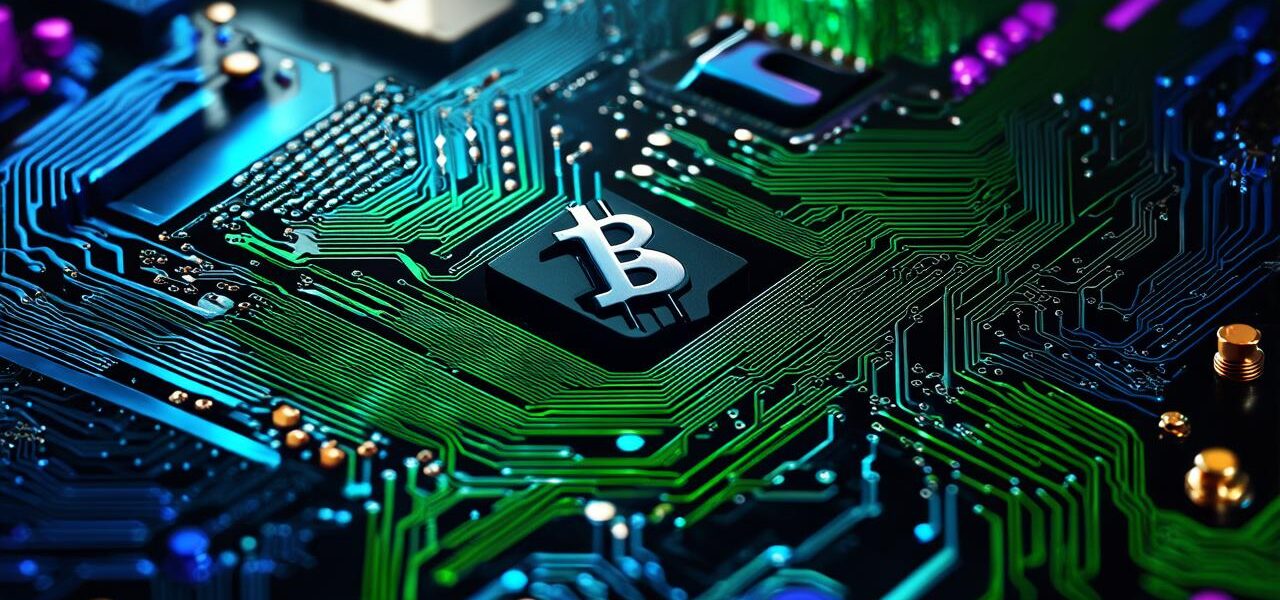
Is Blockchain Development the Future of Technology?

In recent years, blockchain technology has emerged as a revolutionary tool that has the potential to transform the way we conduct business and interact with one another online.
This decentralized, secure digital ledger is being hailed as the future of technology due to its ability to facilitate secure transactions without intermediaries, increase transparency, and automate processes.
Benefits of Blockchain Development
One of the main advantages of blockchain technology is its ability to facilitate secure, decentralized transactions without intermediaries such as banks or payment processors. This reduces the risk of fraud and lowers transaction costs, making it a popular choice for businesses operating globally.
Additionally, blockchain technology offers greater transparency and accountability, with digital ledgers that are publicly accessible and allow anyone to view the transactions that have taken place on them. This makes it easier to track and verify the authenticity of data, reducing the need for trust between parties and increasing overall efficiency.
Another benefit of blockchain technology is its ability to automate processes, reducing the need for manual intervention and increasing efficiency. Smart contracts, which are self-executing contracts with the terms directly written into code, can be used to automate a wide range of transactions, from real estate purchases to supply chain management.
Furthermore, blockchain technology has the potential to improve data security and privacy, with encryption technologies that prevent unauthorized access and tampering.
Real-Life Examples of Blockchain Development
Blockchain technology is already being implemented in various sectors, including finance, healthcare, and supply chain management.
1. Finance: Blockchain technology is being used by financial institutions such as JPMorgan Chase and Goldman Sachs to create digital currencies and facilitate secure transactions. It also allows for the creation of decentralized lending platforms that can provide access to credit for underserved communities.
2. Healthcare: Blockchain technology is being used to store patient data in a secure, encrypted format that cannot be tampered with or deleted. This makes it easier for healthcare providers to share information about patients’ health history and improve their overall care. For example, the MediLedger Project, an initiative of the American Medical Informatics Association, uses blockchain technology to track prescription drug transactions and prevent counterfeit drugs from entering the supply chain.
3. Supply Chain Management: Blockchain technology is being used to track the movement of goods from production to delivery, ensuring transparency and reducing the risk of fraud. This can be particularly useful in industries such as food, where it is important to trace the origin of products and ensure they are safe for consumption. The Food Trust Initiative by IBM uses blockchain technology to provide a secure platform for tracking and verifying the authenticity of food products.
Challenges to Adoption
Despite its potential benefits, blockchain technology still faces several challenges that must be overcome before it can reach its full potential. One of the main challenges is scalability – as more people and businesses use blockchain technology, the network becomes slower and less efficient, leading to increased transaction costs and longer processing times. This can be particularly challenging for small businesses that rely on fast and reliable transactions to remain competitive.
Another challenge is regulatory uncertainty – governments around the world are still grappling with how to regulate blockchain technology, leading to confusion and uncertainty for businesses operating in this space. This can be particularly challenging for startups that are trying to navigate complex legal frameworks and secure funding.
Additionally, there is a lack of understanding about how blockchain technology works and its potential applications among both individuals and businesses. Many still view it as a niche technology rather than a mainstream tool that can revolutionize industries across the board.
Summary
In conclusion, blockchain technology has the potential to transform the way we conduct business and interact with one another online. Its decentralized nature, ability to facilitate secure transactions, transparency, and automation make it an attractive option for businesses looking to improve efficiency and reduce costs. While there are still challenges to overcome, such as scalability and regulatory uncertainty, the potential benefits of blockchain technology cannot be ignored. As more businesses adopt this innovative tool, we can expect to see a revolution in how we conduct business and interact with one another online.
⟨br⟩
Frequently Asked Questions
Q: What is blockchain technology?
A: Blockchain technology is a decentralized digital ledger that records transactions securely and transparently without intermediaries such as banks or payment processors.
⟨br⟩
Q: How does blockchain technology work?
A: Blockchain technology works by creating blocks of data that are encrypted and linked together in a chain, forming a secure and transparent record of all transactions that have taken place on the network.
⟨br⟩
Q: What industries is blockchain technology being used in?
A: Blockchain technology is being used in finance, healthcare, supply chain management, and many other industries to facilitate secure transactions, automate processes, and increase transparency and efficiency.
⟨br⟩
Q: What are some real-life examples of blockchain development?
A: Some real-life examples of blockchain development include JPMorgan Chase’s use of blockchain technology to create digital currencies, the MediLedger Project using blockchain technology to track prescription drug transactions, and IBM’s Food Trust Initiative using blockchain technology to provide a secure platform for tracking and verifying food products.



